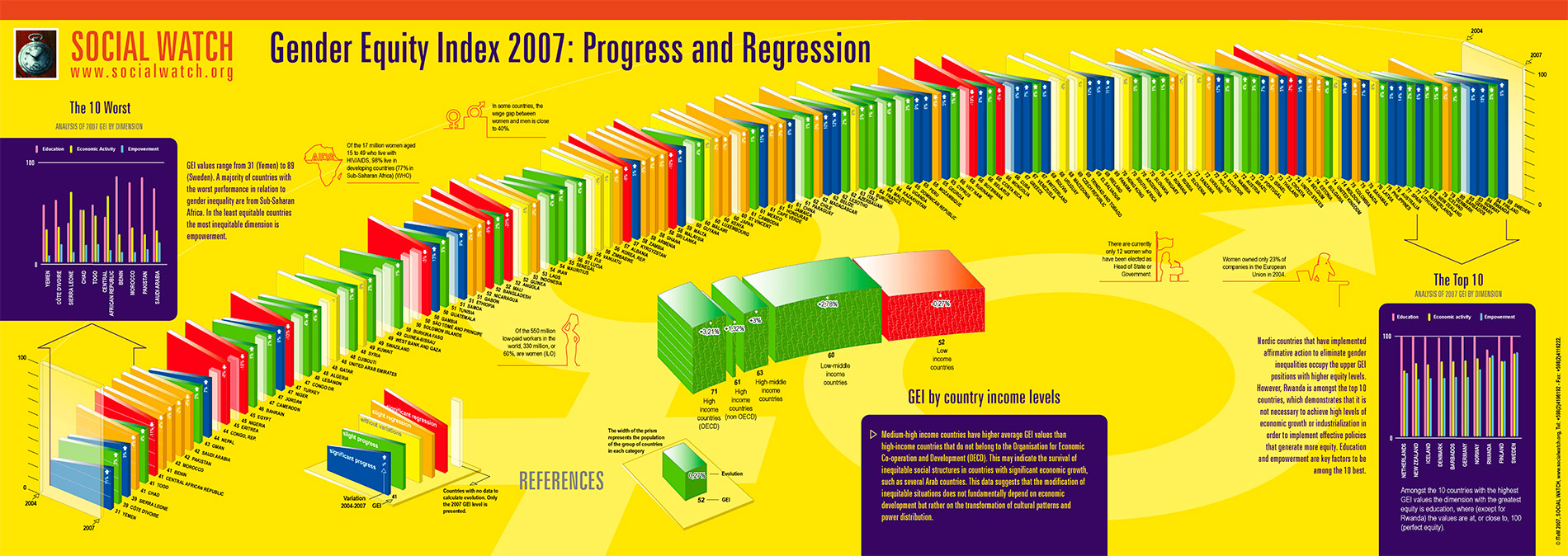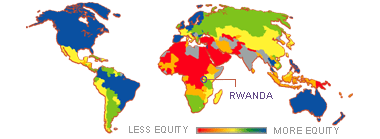
The results of the 2007 Social Watch Gender Equity Index (GEI) clearly demonstrate that a country’s level of wealth does not automatically determine its degree of equity. Rwanda, one of the world’s least developed countries, ranks third on the list of GEI scores, after Sweden and Finland, thanks to intensive affirmative action efforts. In the meantime, a number of high-income countries rank far down on the list. The evolution of the GEI between 2004 and 2007 reveals a few global advances, but the general trend seen throughout the world is either very slow progress or no progress at all. The United States, a high-income country, is one of the 10 countries that have experienced the greatest regression. Obviously, the key to gender equity lies not in a country’s economic power, but rather in its government’s political will. |
 |
| More GEI 2007 | Gender Equity Index 2007 | Recent GEI trends (2004-2007) |
| The Gender Equity Index (GEI) has been developed by the Social Watch Research Team to measure inequities in different areas of women's and men's everyday lives around the world.The 2007 GEI ranks 154 countries by measuring women's relative economic activity, education and empowerment. This year's GEI report additionally focuses on progress or regression in achieving gender equity over the 2004-2007 period. The relevant data have also been analyzed regionally. |
| FOR THE PRESS Download Press Release Contacts/Spokespeople: Roberto Bissio Social Watch Coordinator Mobile: +33 6 89 50 79 46 E-mail: item@item.org.uy Emily Joy Sikazwe Social Watch Coordinating Committee Member Mobile: +260 9777 0886 E-mail: emily_sikazwe@yahoo.com Genoveva Tisheva Social Watch Coordinating Committee Member Phone: +3592 9635357 In NY: +1 212 755 3000 E-mail: gtisheva@yahoo.com |